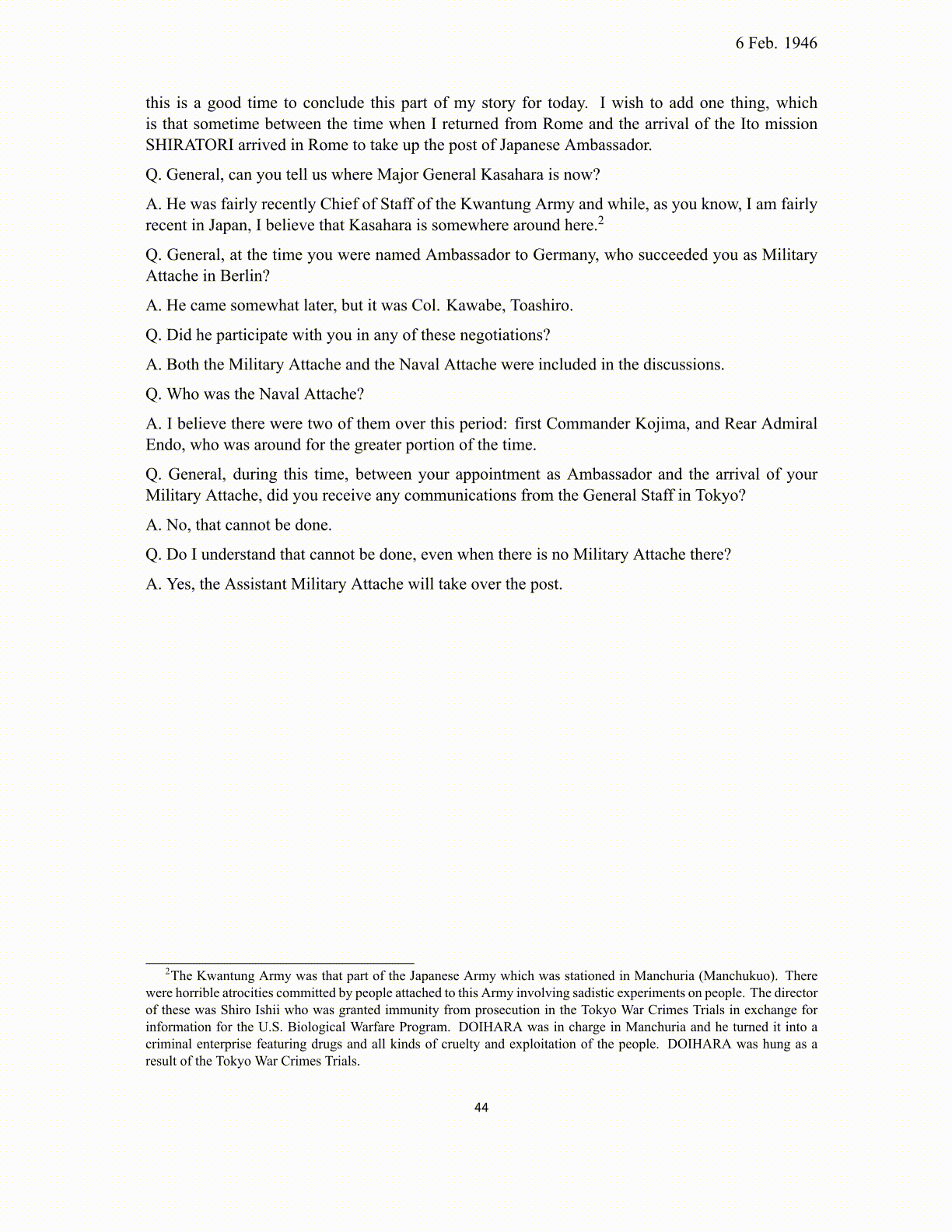
6 Feb. 1946 this is a good time to conclude this part of my story for today. I wish to add one thing, which is that sometime between the time when I returned from Rome and the arrival of the Ito mission SHIRATORI arrived in Rome to take up the post of Japanese Ambassador. Q. General, can you tell us where Major General Kasahara is now? A. He was fairly recently Chief of Staff of the Kwantung Army and while, as you know, I am fairly recent in Japan, I believe that Kasahara is somewhere around here. 2 Q. General, at the time you were named Ambassador to Germany, who succeeded you as Military Attache in Berlin? A. He came somewhat later, but it was Col. Kawabe, Toashiro. Q. Did he participate with you in any of these negotiations? A. Both the Military Attache and the Naval Attache were included in the discussions. Q. Who was the Naval Attache? A. I believe there were two of them over this period: first Commander Kojima, and Rear Admiral Endo, who was around for the greater portion of the time. Q. General, during this time, between your appointment as Ambassador and the arrival of your Military Attache, did you receive any communications from the General Staff in Tokyo? A. No, that cannot be done. Q. Do I understand that cannot be done, even when there is no Military Attache there? A. Yes, the Assistant Military Attache will take over the post. 2 The Kwantung Army was that part of the Japanese Army which was stationed in Manchuria (Manchukuo). There were horrible atrocities committed by people attached to this Army involving sadistic experiments on people. The director of these was Shiro Ishii who was granted immunity from prosecution in the Tokyo War Crimes Trials in exchange for information for the U.S. Biological Warfare Program. DOIHARA was in charge in Manchuria and he turned it into a criminal enterprise featuring drugs and all kinds of cruelty and exploitation of the people. DOIHARA was hung as a result of the Tokyo War Crimes Trials. 44